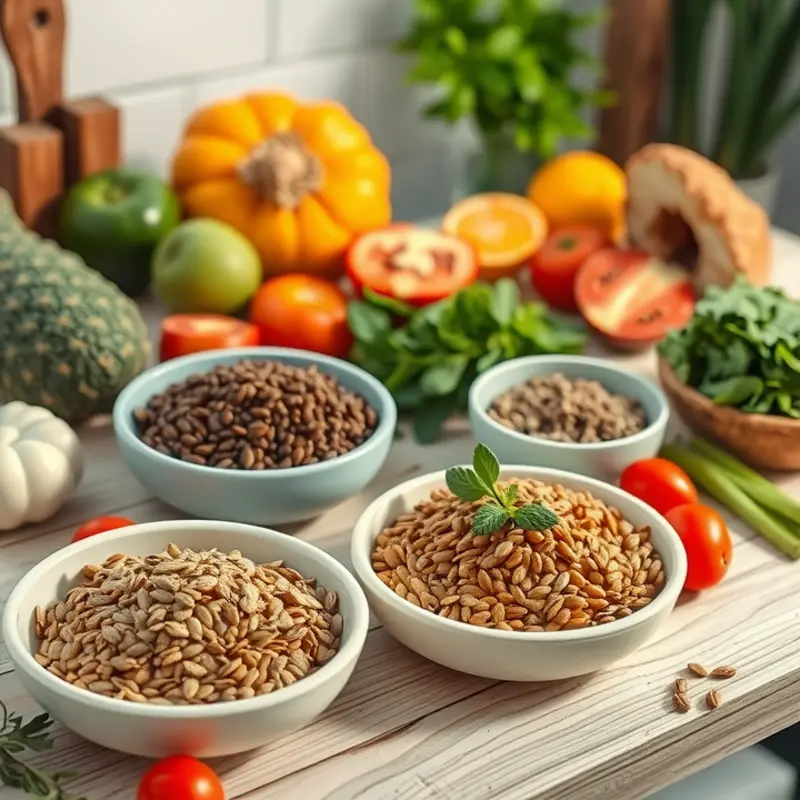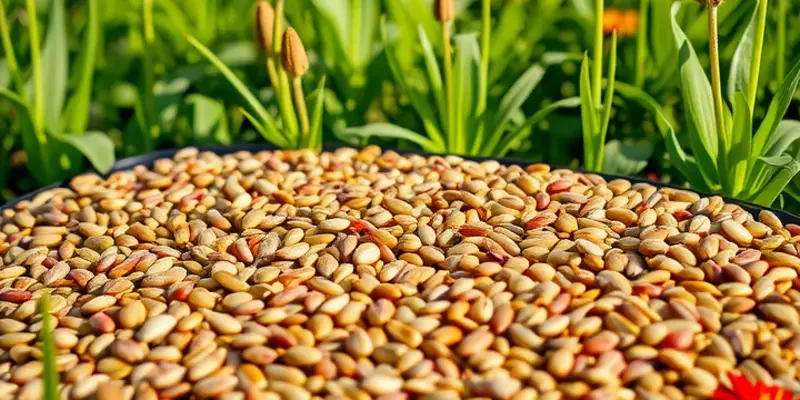Maintaining healthy blood pressure is crucial for overall wellness, and incorporating super seeds into your diet can be an effective strategy. These tiny powerhouses are packed with essential nutrients, vitamins, and minerals that not only support heart health but also deliver a multitude of benefits. Throughout this exploration, you will find easy-to-understand insights on how specific seeds can enhance your daily wellness and contribute to optimal blood pressure management.
Nutritional Wizards: The Best Seeds for Heart Health

Seeds are powerful nutritional allies, playing a critical role in heart health by aiding blood pressure regulation. Among the vast array of seeds, a few stand out for their proven benefits and versatility in culinary use.
First on the list is flaxseeds, rich in alpha-linolenic acid (ALA), a type of omega-3 fatty acid. Flaxseeds have been shown to reduce blood pressure, thanks to their ability to enhance endothelial function, which helps blood vessels relax. Their nutty flavor makes them an excellent addition to smoothies, oatmeal, and baked goods. Ensure to grind them for optimal absorption of nutrients.
Chia seeds are another powerhouse, packed with omega-3 fatty acids, fiber, and protein. These nutrients work in harmony to aid the reduction of blood pressure levels. Chia seeds can absorb up to ten times their weight in water, creating a gel-like consistency perfect for thickening smoothies, making puddings, or adding texture to yogurt.
Well-known for their crunchy texture and pleasant taste, pumpkin seeds are also a fantastic choice. They contain magnesium, a mineral crucial in maintaining a steady blood pressure level. A small handful of roasted pumpkin seeds makes a heart-healthy snack that’s both nutritious and satisfying. They’re equally delightful as a topping for salads and soups.
An often overlooked seed, the hemp seed, is packed with a balance of omega-3 and omega-6 fatty acids. These fats are vital for reducing inflammation, a common contributor to high blood pressure. With a mild, nutty flavor, hemp seeds can be sprinkled over avocado toast, added to smoothies, or mixed into granola bars.
The lesser-known sesame seed should not be neglected. High in lignans and phytosterols, sesame seeds have been linked to improved heart health markers, including decreased blood pressure. Their subtle crunch and flavor profile make them an ideal addition to stir-fries, salads, and even as a crust for fish or chicken.
Including these seeds in your daily diet can be as simple as making small adjustments to your meals. Whether sprinkled over a morning bowl of cereal, blended into a smoothie, or used as a topping for baked goods, seeds are versatile enough to seamlessly integrate into your diet. Their potential to improve heart health while offering culinary flexibility makes them a perfect choice for anyone looking to maintain healthy blood pressure levels.
For more tips on incorporating seeds and other nutrient-dense foods into your meals, explore efficient snack prepping.
Easy Ways to Incorporate Super Seeds into Your Diet

Incorporating super seeds into your daily meals can be both delicious and convenient. These tiny powerhouses are packed with nutrients that can help regulate blood pressure while enhancing your meals with texture and flavors. Here are some practical tips and ideas to make these seeds a staple in your diet.
Start your day with a nutrient-packed breakfast by adding a tablespoon of chia seeds to your morning smoothie. These seeds are rich in omega-3 fatty acids, which support heart health. Blend together your favorite fruits, a handful of spinach, a cup of almond milk, and a spoonful of chia seeds for a creamy and revitalizing drink.
If you prefer a different breakfast, consider making overnight oats by mixing rolled oats with milk or a plant-based alternative. Stir in a tablespoon of flaxseeds. As the oats soak overnight, the natural oils from the seeds enhance the meal with a nutty flavor, giving you a heart-healthy start to the day.
For a quick lunch, how about a salad with added flair? Sprinkle pumpkin seeds over a bowl of mixed greens, cherry tomatoes, and avocado slices. These seeds are not just crunchy; they’re a great source of magnesium, a mineral that can help maintain normal blood pressure. Dress your salad with olive oil and a squeeze of lemon to complement the taste.
Snacking is another opportunity to add seeds to your diet. Create a trail mix with sunflower seeds, almonds, and dried berries. These seeds offer a satisfying crunch and are an excellent source of vitamin E, which supports heart health. Pack a small portion in your bag for an on-the-go snack that keeps hunger at bay and nutrients up.
For dinner, incorporate super seeds by topping your favorite pasta dish with a mix of toasted sesame seeds and diced parsley. The seeds provide a rich, nutty flavor that pairs well with tomato-based sauces, while their calcium content supports bone health.
Looking for a dessert option? Baking with seeds is easier than you might imagine. Add a quarter cup of hemp seeds to your muffin batter. These seeds have a slightly nutty and earthy flavor and are rich in protein and essential fatty acids, making your dessert both more nutritious and satisfying.
Incorporation of these seeds can be both easy and rewarding. By simply sprinkling, stirring, or blending them into your meals, you’ll enjoy a variety of textures and flavors that elevate your culinary experience. For more inspiration on healthy evening snacks featuring these super seeds, explore ideas here. Let these simple tips be your guide to a heart-healthier lifestyle, one seed at a time.
Final words
Understanding the benefits of super seeds is a vital step toward managing blood pressure naturally. By integrating these nutrient-dense seeds into your daily meals, you can harness their potential to improve heart health and maintain optimal blood pressure levels. Seeds such as chia, flax, pumpkin, and sunflower not only provide essential omega-3 fatty acids but are also rich in fiber, vitamins, and minerals. Embracing these natural ingredients is an effective way to enhance your wellness journey. Remember, small changes to your diet can lead to significant health improvements over time.








